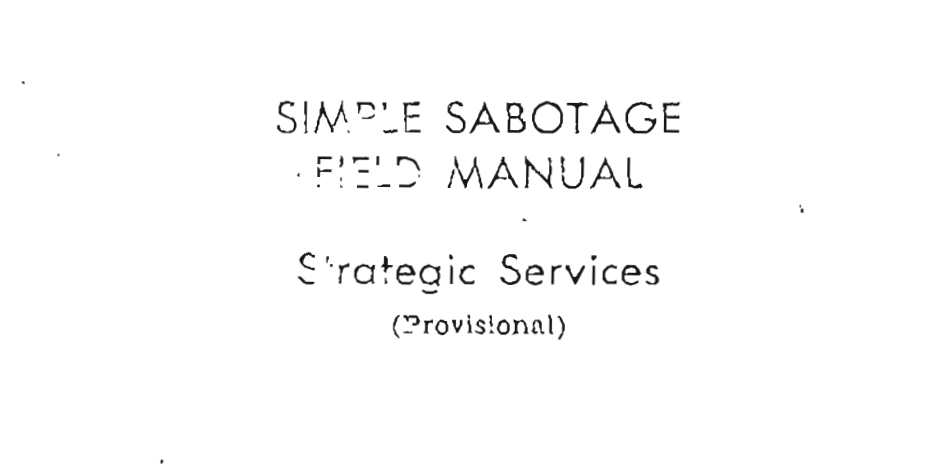Are you unintentionally sabotaging meetings?
This is awesome if you haven’t ever seen it.
A few years ago the CIA de-classified a bunch of stuff, including their “Strategic Services Field Manual” from 1944. It’s an interesting read on its own, and like pages 8 and 9 are all about setting things on fire in the 40s.
More interesting for our purposes is the section around how to sabotage an organization from the inside. I realize that many if the items therein probably apply to a lot of bureaucracies, but wow, I swear some of these are straight out of the unofficial playbook of places I’ve recently worked on how we are actually running meetings.
I’m sure we’re all guilty of all of these at some point — but it’s probably also the case that most folks aren’t aware that they might be unintentionally grounding a conversation/meeting/project by using these tactics.
Strategic Services Field Manual – Unclassified
Page 28:
General Interference with Organizations and Production
(a) Organizations and Conferences
- Insist on doing everything through “channels.” Never permit short-cuts to be taken in order to expedite decisions.
- Make “speeches,” Talk as frequently as possible and at great length. Illustrate your “points” by long anecdotes and accounts of personal experiences. Never hesitate to make a few appropriate “patriotic” comments.
- When possible, refer all matters to committees, for “further study and consideration.” Attempt to make the committees as large as possible - never less than five.
- Bring up irrelevant issues as frequently as possible.
- Haggle over precise wordings of communications, minutes, resolutions.
- Refer back to matters decided upon at the last meeting and attempt to re-open the question of the advisability of that decision.
- Advocate “caution.” Be “reasonable” and urge your fellow-conferees to be “reasonable” and avoid haste which might result in embarrassments or difficulties later on.
- Be worried about the propriety of any decision - raise the question of whether such action as is contemplated lies within the jurisdiction of the group or whether it might conflict with the policy of some higher echelon.
